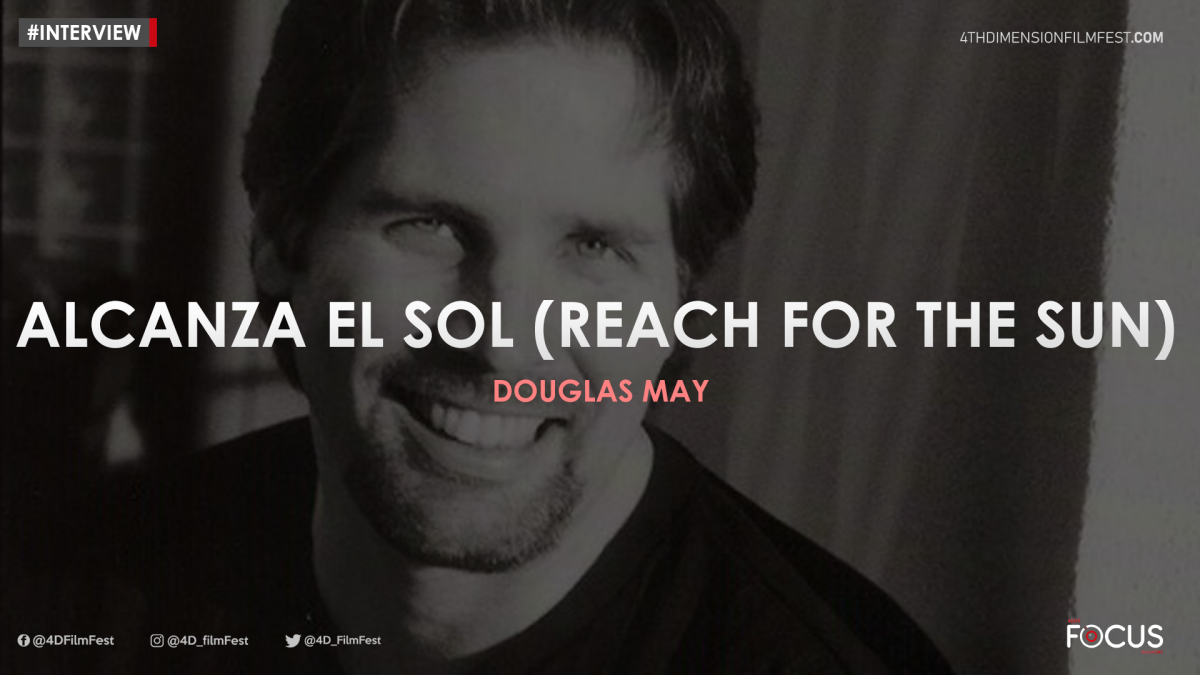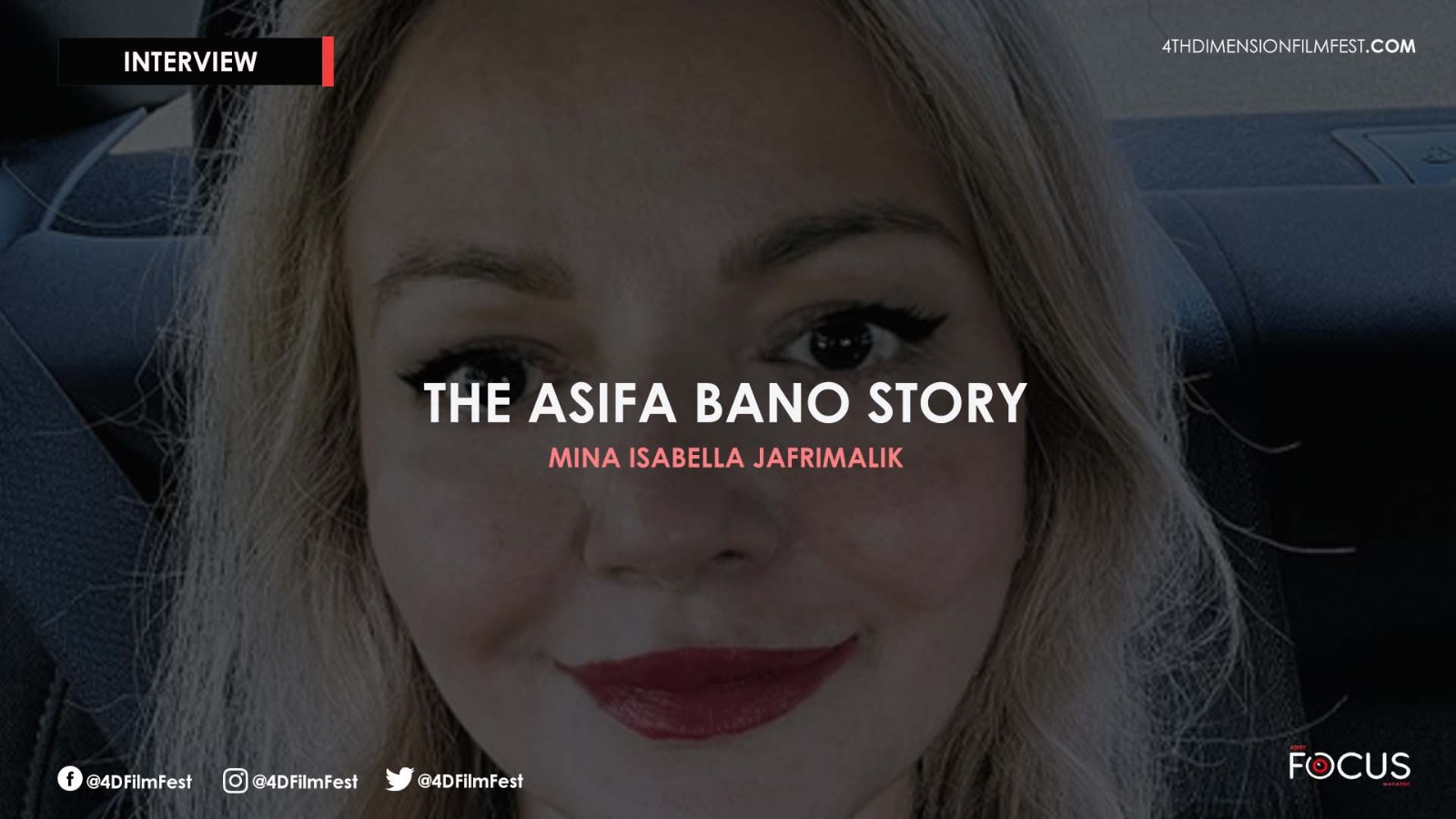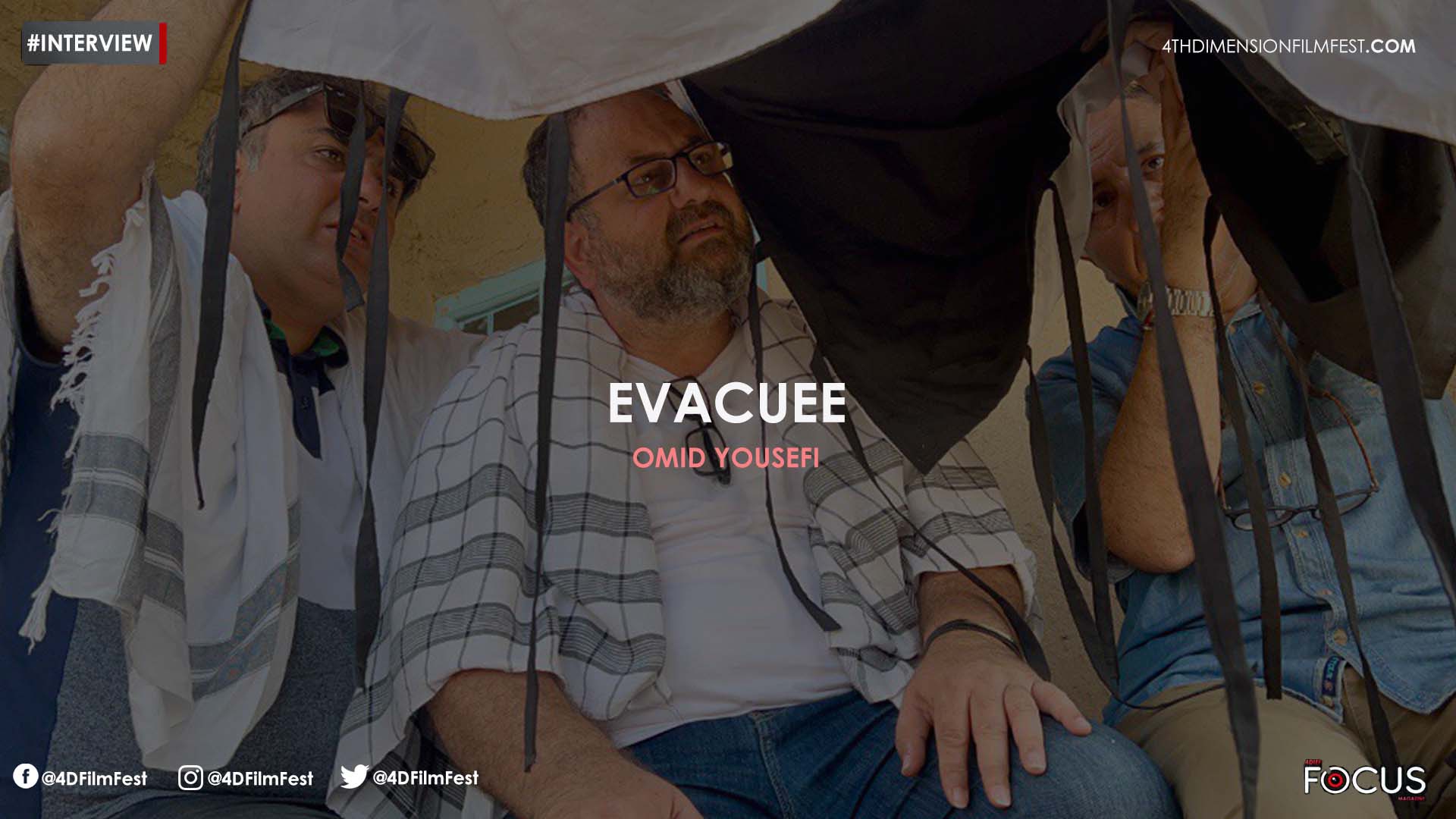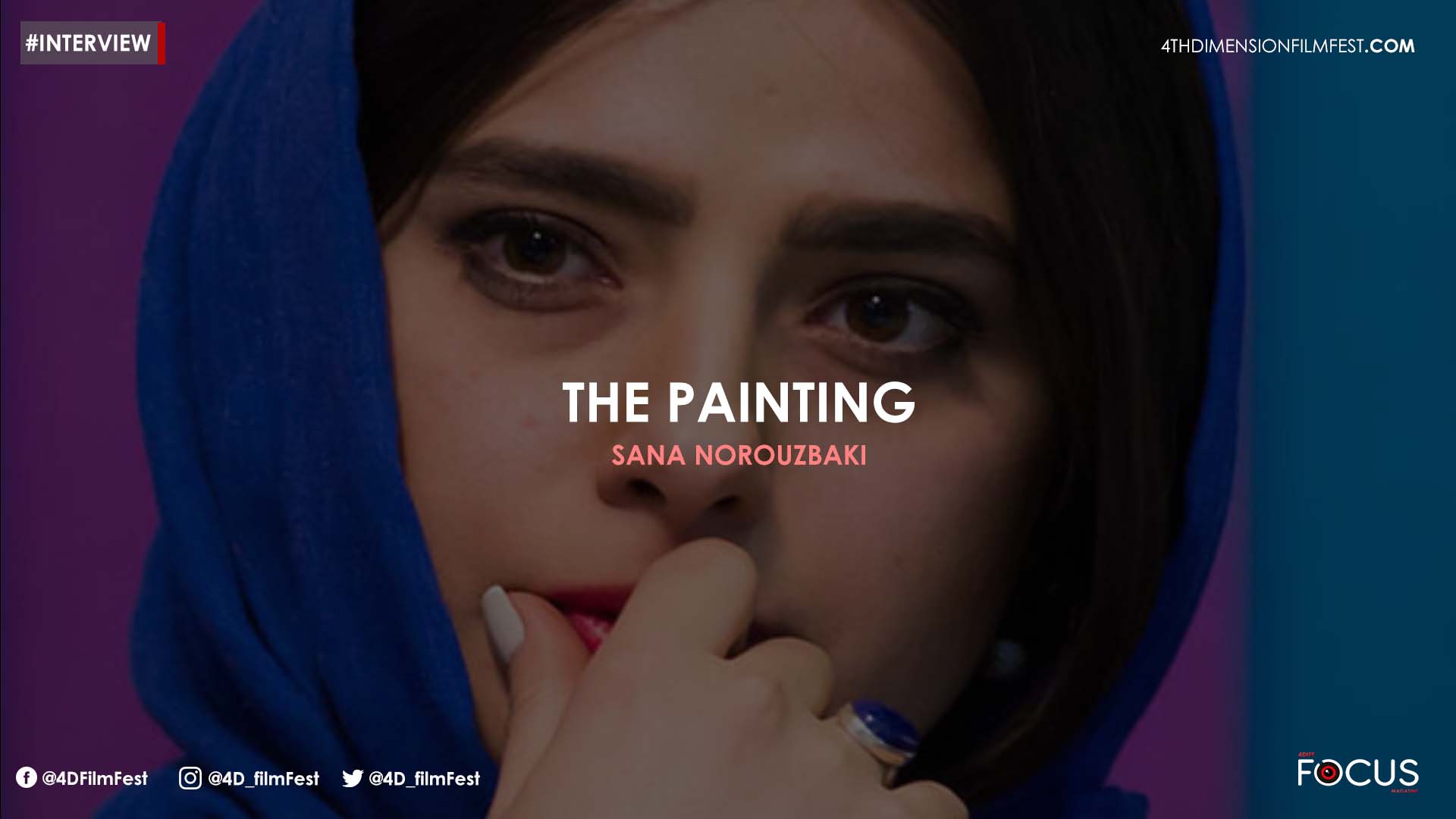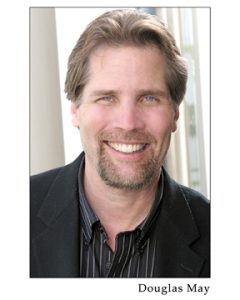
The story has a fascinating title. Tell us how you came up with it. Did you have the title in mind before writing the script or did you think of it later?
Thank you for that nice compliment! I wanted the story to have some kind of metaphor that symbolizes the preciousness of life and hope, even under the worst of circumstances, and the sunflower is emblematic of that notion and appears as a recurring theme. Originally, the story was called, “Twist the Sunflower,” denoting the delicate quality of what the sunflower represents in the story and how easily it — and people’s lives — can be destroyed, but after thinking about it, I think “Reach for the Sun” presents a more hopeful vision for Isabella’s journey. The recurring sunflower motif is emblematic of the hope of a better life that stays with Isabella, through thick and thin, and is passed on to her daughter.
Tell us how you came up with the story. Is it that story you always wanted to tell? A story that was evolving and developing itself inside.
I was overcoming grief for the unexpected death of a loved one whom I was going to marry, which put me in a tailspin of depression and hopelessness. A therapist I started seeing suggested that I begin journaling my thoughts (also known as Narrative Therapy) to help relieve the pain I was feeling. As I began writing to the person I lost as a way to speak with her, recalling past events and conversations, I started weaving a story out of it, and a friend invited me to a free screenwriting class as a way to occupy my mind and dispel some of the anguish I was feeling. As I kept writing the story, I started putting it in script form for the class, and after about seven or eight months, I had a complete story in screenplay form! It is based very loosely on people I have known, but largely, it is made up of fictional characters and events and woven together as a morality tale that deals with life and death, fate, and how we all fit into the puzzle.
How would accurately describe the process of writing a screenplay? Of course, it is different for everyone. It is a tedious process at times. Do you think the process must follow a specific structure?
The instructor who led the screenplay class I was in had us follow the “Save the Cat” structure outlined in the screenwriting book. As I looked at the structure he put on the board each week, it made perfect sense to me as to how to construct a story. Since I already had a good start on the tale I was going to tell, and also since I had a lot of material from my life to work with, it came together fairly well during the months I worked on it. I didn’t mind that it took a long time as it gave my life tremendous meaning and as I said, kept me in touch in some way with the person I lost and helped fill those empty days and nights.
How does a writer visualise the events written in a script sequentially? Does every image, gesture and action appear with the same clarity?
What worked for me was to imagine that I was sitting in front of a giant movie screen in a darkened theater watching the film I was writing. It helped me actually see the characters and what was going on in vivid detail in my mind. As I was writing, I would try to stick to a realistic story, but then let my mind wander to imagine the most interesting twists and turns the narrative could take. The story also has a very unique structure (some have called it jarring), and it basically is two movies, or stories, in one that does not always stick to linear action.
What has been your inspiration? A writer, a director ? What made you want to become a storyteller? Would you like to suggest a book and a movie everyone must read and watch respectively?
My dad was a professional actor, so my brother and I were weaned on old movies since we were little kids. Great classic movies such as Captain Blood, Treasure of the Sierra Madre, King Kong, North by Northwest, Vertigo, and others were always fun to watch and study. I, too, have worked as a professional actor, but I think writing is a much more powerful vantage point to work from. I always felt more like a writer than an actor when I was younger.
What do you think is the scope for visual storytelling in modern cinema? Is it increasing exponentially?
I’m not sure. I don’t watch current movies as much as I used to…lots of the films come and go on virtual streams and aren’t the big events they were in years gone past…films such as The Godfather, or Jaws, for example. I think filmmakers have gotten lost in big-production films with tons of special effects and unrealistic CGI-led stories. Where can you go after Nazis, sharks, aliens, and dinosaurs have been done to death? I think the future of films will have its share of Jurassic Park and Star Wars-type of blockbusters, but there may also be a growing focus on smaller stories of regular people and the events that change their lives — for better or worse — which depict the human struggle that we can all relate to.
Where do you think narrative storytelling is heading towards? Keeping in mind the events around The Irishman, do you think it is becoming a niche medium against the ever increasing market for the spectacular (VFX, CGI)?
As I just mentioned, I think there will always be room for narrative-driven storytelling. Don’t get me wrong…it’s always fun to see giant dinosaurs on the screen or Indiana Jones going after the bad guys in Raiders of the Lost Ark, but I think people have gotten numb to the CGI-driven special effects extravaganzas with clichéd, invincible, wise-cracking heroes and aren’t that impressed any more…it’s just more of the same, over and over. I think humanistic stories that touch us because of the narrative they unfold that give us insight to a protagonist’s struggles and dilemmas, and the ways he or she deals with those problems, will entice more moviegoers nowadays than a new version of the Millennium Falcon piloted by Han Solo’s great grandson.
How easy or difficult is it to incorporate themes within a narrative? Is it at all a premeditative process or does it come organically?
I couldn’t tell you. The themes that run through “Reach” were not really evident to me until I had finished the story. I was just trying to weave some kind of story that held together for most of Isabella’s journey, but when I sat back and read it, I realized that it actually has about three or four themes to it. It deals with a lot of current problems in American society nowadays — mental anguish and psychotherapy, the disaster of COVID-19, the Mexican border, sex trafficking, opioid addiction, free will vs. fate, and finally, the plight of an illegal immigrant making her way in America — and these problems are the underpinnings of the major themes of the story.
Slightly different question – How would accurately define the construction of the modern world? Is it now a place where perseverance is key for survival?
Haha. “Perseverance” could be Isabella’s middle name. The modern world can be a brutal place, as is evident at different stages of Isabella’s journey. She comes to America to find love and riches…she finds love, but little else. However, she does find her true destiny through that love, which ultimately makes her voyage the major turning point of her life. What keeps Isabella going is perseverance. She is driven to survive, despite the horrendous incidents she experiences and the terrible losses she endures. Someone with less fortitude would have undoubtedly given up early on in the story, given the circumstances of her fate.
How would you describe the American Dream? Is it a make belief construct too full of idealistic optimism?
The American as addressed in the script . The concept that was addressed with intensity by Arthur Miller.
Isabella seeks the American Dream…ironically, she finds it, but not in America. I think a great twist of the story is that many immigrants come to America with a similar dream as Isabella, and some achieve that dream, but many others, by contrast, become victims of underworld influences — drug dealing, prostitution, theft, crime, etc. — to survive, finding the American Dream to be hollow as their lives devolve into poverty and squalor.
How significant do you think is the tussle between dreams and disillusionments?
What is the point where patience becomes pertinent?
Sometimes a dream is all one has. To keep that dream alive is sometimes key to someone’s existence. Even now, as I’m older, I still am pursuing dreams that younger men usually strive for. I play guitar in a band, I perform acting roles when I get them, and now, I have a screenplay out in the world which may become a motion picture, if I’m lucky. Who knows what the future may bring? It all takes patience, and many of what is happening for me now took years of patience, practice, and preparation, but every step of the journey is still exciting. Keeping positivity in one’s life is the best way to stay driven and derail disillusionment, in any form that takes. Keep dreaming, keep writing, keep playing music…keep it all going. You have nothing to lose, and everything to gain. Just ask Clint Eastwood, who won three of his five Academy Awards at very, very late stages in his life after most of his contemporaries had retired. So, I say…dream on and never give up!


